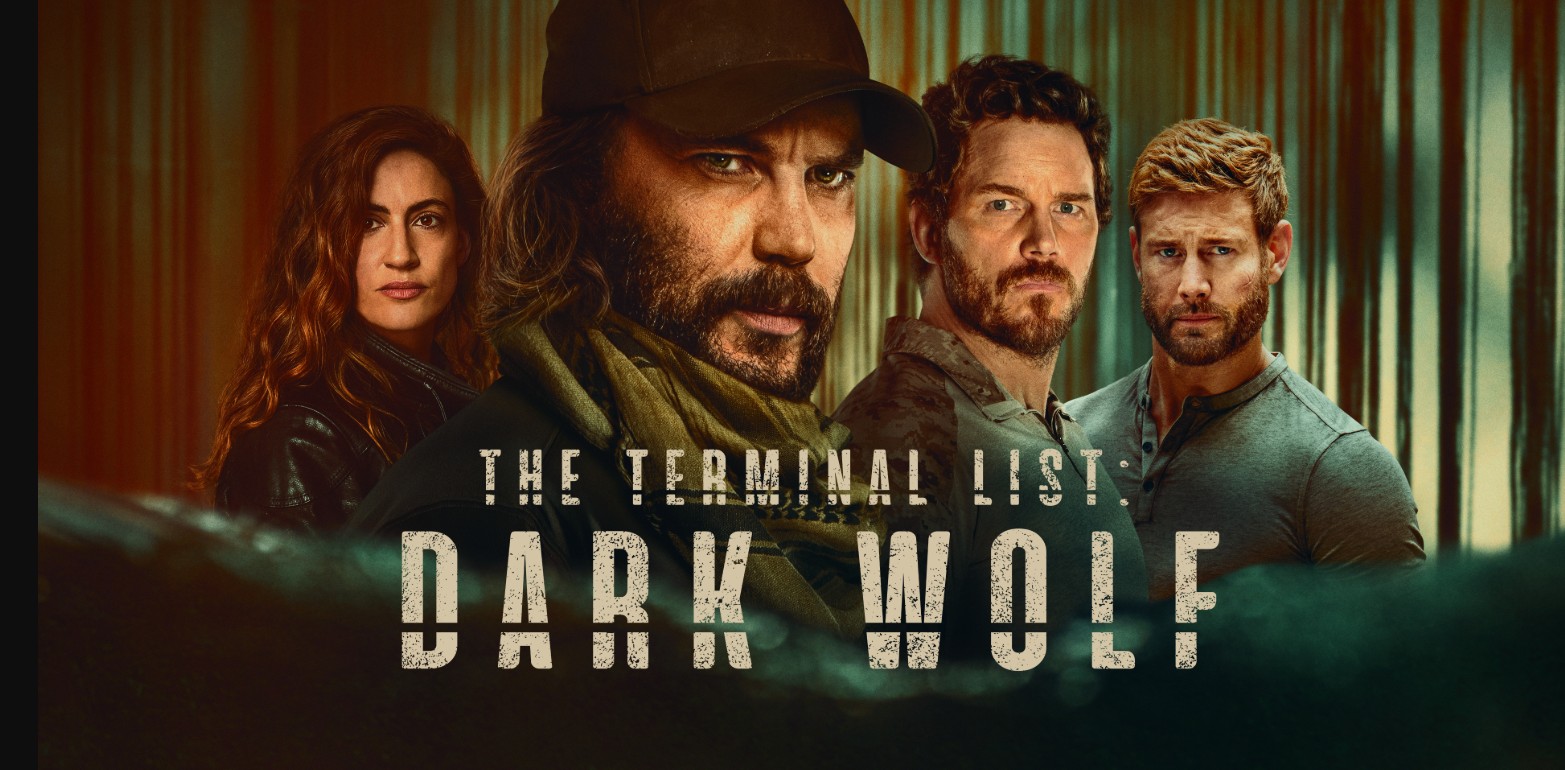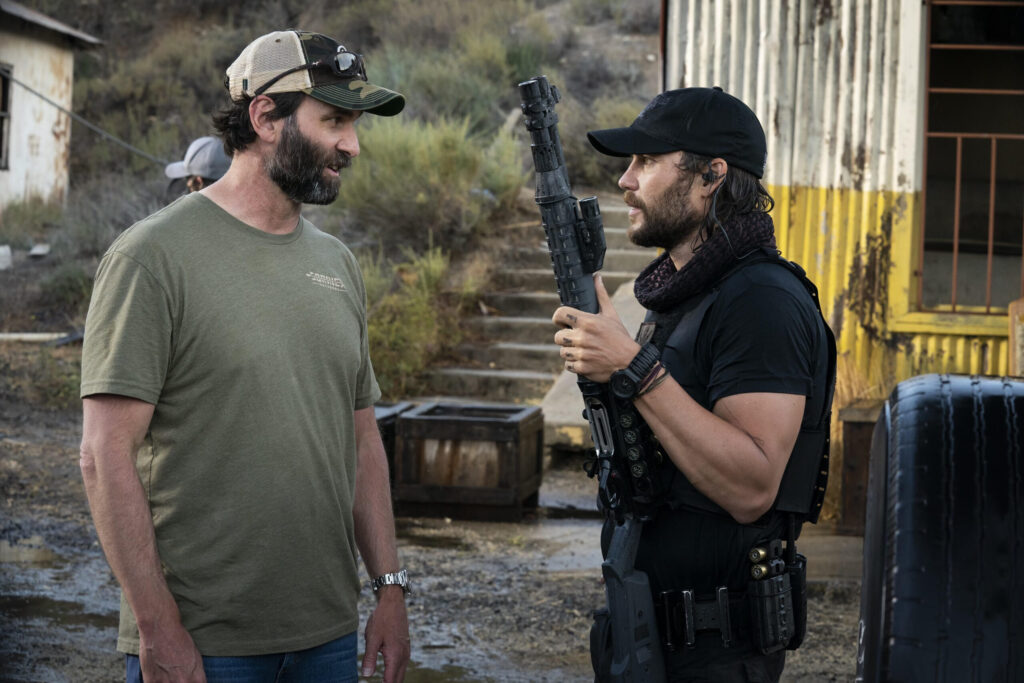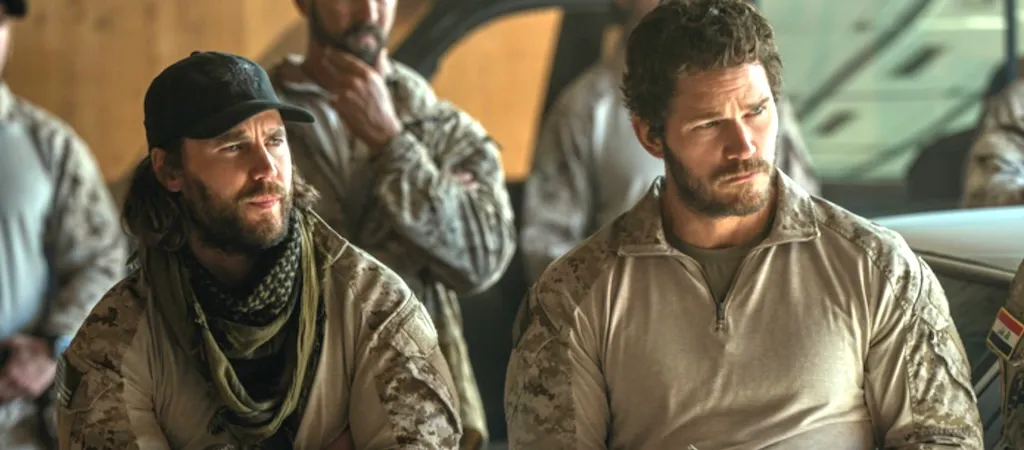
The Terminal List 2025: Dark Wolf – Review, Breakdown & Thoughts
The Terminal List 2025: Dark Wolf – Review, Breakdown & Thoughts

Ever wondered how Ben Edwards became the Dark Wolf? Strap in — The Terminal List: Dark Wolf isn’t just action, it’s origin story with bullets, betrayal, and the brotherhood breaking down.
Overview
So here’s the deal: The Terminal List: Dark Wolf is a prequel to The Terminal List (2022), showing how Ben Edwards went from Navy SEAL to this morally grey CIA operative (you know, the kind who sleeps with one eye open).
- Creators: Jack Carr (yes, the same Jack Carr who wrote the books) + David DiGilio.
- Where/When: Premiered August 27, 2025, on Prime Video. First three episodes dropped together, rest weekly until September 24.
- Format: Season 1, ~7 episodes (some sources say 6-7) of ~50-70 minutes each. Action / espionage / thriller / moral conflict. The promise: show us why Ben Edwards becomes “Dark Wolf,” what breaks him, what choices push him into the shadows, and how the world of covert ops etc. messes with your soul. It aims to combine big action, moral ambiguity, close-team bonds (and their breaks), and geopolitical stakes. ([Roger Ebert][2])
Detailed Breakdown
Plot / What Happens
Without giving away too much, here’s the backbone:
- We’re dropped into Iraq, circa 2015. Ben Edwards is SEAL Team 5 (Charlie Platoon), leading training missions etc., fighting ISIS / extremist threats.
- A prisoner exchange goes horribly wrong; a betrayal / screw-ups that cascade. There are mission orders that clash with personal morals. Edwards and his buddy Raife Hastings (Tom Hopper) make decisions that lead to them being stripped of their SEAL status (or at least in danger of it).
- They are then recruited (or pulled in) by a CIA spymaster Jed Haverford (Robert Wisdom) into black ops / deniable missions. The further they go, the darker things get—not just from outside threats, but the internal weight of doing things you’re not sure are “right.”
- Missions take them beyond Iraq: European locales, Iran, Israel, etc. There are conspiracies, weapons deals, double agents, moral compromises. We begin to see how Edwards starts feeding his “dark wolf” (metaphorically speaking) vs the “light wolf.”
Tone, Style, Visuals
- Gritty, serious, with a lot of action. Think explosions, shoot-outs, tactical realism. Not shy about violence.
- There’s an attempt at authenticity: use of real SEAL / military advisors, the jargon, the gear, the tactical planning. It feels “military thriller” more than “spy fantasy.”
- Also, the pacing is often brisk. Some episodes drag a little in exposition; others are non-stop. Some episodes do a lot of moving pieces (characters, plot threads).
Here’s the Characters & Cast section in English, as a bullet-list format:

Characters & Cast
-
Ben Edwards – Taylor Kitsch The main guy. A former Navy SEAL and now dragged into the CIA’s shadowy world. Kitsch nails the stoic, haunted quality—he’s the kind who’s built tough, but it shows when stuff breaks him.
-
Raife Hastings – Tom Hopper Ben’s teammate and moral counterpoint. Calm under pressure, loyal, often in the role of “voice of reason.” Hopper gives Raife weight—he’s grounded, believable, someone you’d root for (even when things go south).
-
James Reece – Chris Pratt Not in every scene, but his presence looms large. Reece’s the bridge between Dark Wolf and the original Terminal List; he helps show where Ben’s choices will ripple into later events. Pratt fits the familiar swagger, but there’s less new to unpack here compared to Edwards.
-
Mohammed “Mo” Farooq – Dar Salim Brings in local, geopolitical stakes. An ISOF officer (later contractor), his perspective adds nuance—he’s neither wholly an ally nor a villain, and that makes his conflict interesting.
-
Jules Landry – Luke Hemsworth A CIA contractor, more volatile and flamboyant than some others. Landry’s personality clashes with the tighter military types. He helps mix things up—ideologically and emotionally.
-
Jed Haverford – Robert Wisdom Spymaster / old guard. He’s got history (Army background, embassy stuff), and he guides / pushes Edwards into darker missions. Wisdom brings gravitas; you sense the weight of what he’s seen.
-
Eliza Perash – Rona-Lee Shimon Mossad operative, tough and sharp. Her relationship with Edwards adds tension—professional and emotional. She’s not just a side character; she’s someone whose decisions matter.
-
Tal Varon – Shiraz Tzarfati Operating under Perash, involved in cyber / intelligence / forgery stuff. She’s younger, ambitious, sometimes in her own moral grey. Helps show the operational side beyond front-line combat.

Critique & Analysis
Ok, here comes the meaty part: what works, what doesn’t, and where Dark Wolf stumbles (but also where it shines).
What Works Well
-
Action & Set-pieces When the show fires, it fires. The battle scenes, the ambushes, the prison exchange, chasing leads, betrayals—they do a good job with tension, choreography, visuals. If you're watching for adrenaline, Dark Wolf delivers.
-
Authenticity / Realism Tick Gear, tactics, the way the military / CIA bureaucracy is shown, the moral complexity—these are handled more seriously than many generic action-thrillers. The presence of real veterans in advisory roles helps.
-
Character Conflict & Moral Grey The struggle inside Edwards—loyalty, guilt, what orders to obey, when to disobey—is interesting. It reminds you that war / covert op life isn't clean. Also, the “brotherhood” theme (you do things because of the guys next to you) is strong. That makes certain emotional beats land.
-
Expanding the World / Lore / Prequel Value Fans of The Terminal List will appreciate seeing the backstory, seeing how relationships form, what breaks, what leads to the person Edwards becomes. The inclusion of characters who connect with Season 1 adds stakes. -Rotten Tomatoes
What’s Less Convincing / Areas of Weakness
-
Lead's Emotional Access As mentioned, Kitsch is good at brooding, toughness, restraint. But sometimes that restraint tips over into blandness. When the show needs Edwards to emotionally connect, it only happens unevenly. Some viewers might find him “locked down.” ([TVGuide.com][3])
-
Plot Disjointedness / Pacing Issues Because the show juggles multiple threads (missions, politics, betrayal, international intrigue), some episodes feel crowded or meandering. There are stretches where you’re waiting for plot points to converge. Also, the buildup sometimes drags. ([Roger Ebert][2])
-
Familiarity / Lack of Originality If you’ve seen Zero Dark Thirty, Jack Ryan, Mission: Impossible, Sicario etc., a lot of this feels “been there.” Sometimes Dark Wolf leans on tropes: tortured operators, shady higher ups, betrayals, moral dilemmas. It doesn’t always twist those tropes in surprising ways. ([Pajiba][5])
-
Ideological Simplifications Some reviews criticize the show for simplifying geopolitical complexity—making certain factions too “evil” or making moral lines more black-and-white than you’d like in such a setup. The villainy of bad actors is often assumed rather than explored. ([Variety][6])

My Personal Thoughts
If I were chatting with a friend: Dark Wolf is a good time. If I want popcorn, explosions, guys in gear making tough calls, this scratches the itch. It’s not perfect, but I think it delivers more hits than misses, especially in the first half of the season.
I’m invested in what led Ben Edwards down his path, and I like that the show doesn’t pretend everything is heroic. The weighing of cost (emotional, moral, physical) feels real. Sometimes it could push harder—like more consequences, or letting us feel the inner turmoil louder—but what it does do is solid.
If I compare to The Terminal List (original), the prequel has more breathing room to explore, but that also means some pacing sacrifices. Also, being a fan of the books helps; if you don’t know the lore, some characters and backstory might feel less impactful.
Conclusion
So, final verdict: The Terminal List: Dark Wolf is worth watching. If you like military-thrillers, action, moral messiness, and origin stories, you’ll get your money’s worth. It’s not perfect—lead could be more emotionally accessible, some plot threads meander, and tropes are definitely in play. But overall, it elevates what a prequel could do: fill in pieces, deepen character, and set up the original show better.
Rating (my own): 7.5 / 10.
If I had to recommend:
- Stream it if you enjoyed The Terminal List, or if you enjoy other action/espionage shows and want backstory.
- Skip or wait if you want something deeply fresh / surprising / emotionally explosive—Dark Wolf risks being predictable for those who follow the genre a lot.
